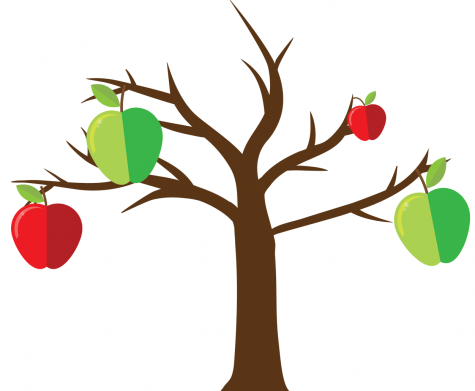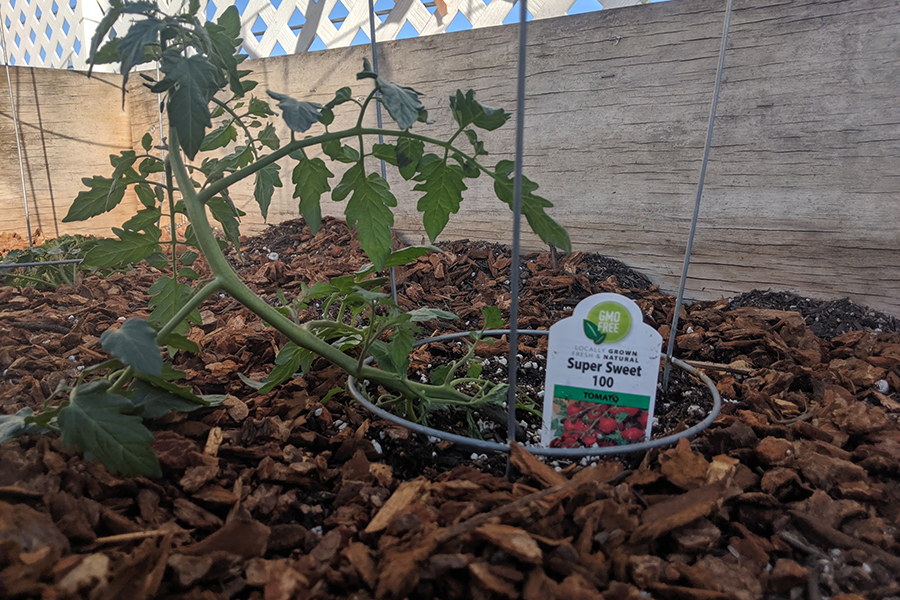Tu B’shvat: Who grows the fruit?
ARRIVAL: Newly planted in last year’s wooden planters by the turf fence, an heirloom cherry tomato plant celebrates the holiday of the trees. “I will be starting up the garden on the third floor this Monday, on Tu B’Shvat,” Jacob posted on Schoology Friday morning.
February 10, 2020

The “new year” of the trees, also referred to as the birthday of the trees or Tu B’shvat, meaning the 15th of Shvat, is coming up this year on Feb.10. You can celebrate it by having a seder, consisting of various fruits, nuts and vegetables commonly associated with the land of Israel — figs, grapes, barley, olives and pomegranates, for example — or simply by eating these things throughout the day.
The Talmudic rabbis originally meant for Tu B’shvat to assist farmers in determining when the trees were ready to blossom and start a new produce-bearing cycle. Any fruit that was harvested from the trees before Tu B’shvat is considered produce of the previous year, and what’s harvested after is counted as produce of the new tree year. Maaser — the requirement for a Jew to give one-tenth of agricultural produce to charity– relies on these calculations, a kind of religious tax applied to produce.
However, this tax is not like the ones paid to the U.S. government, through which you can easily recognize that you are paying for your safety, paved roads, protected freedoms, etcetera. This maaser tax — to God — is given with the expectation of not receiving anything in return, as God is ultimately the creator of the universe and with that, the “Owner” of the trees.
This reality is not always easy to remember, especially when you are the person working hard labor and putting immense effort into taking care of these trees. It feels as though, “Why do I have to give my produce away if I worked so hard to earn it?”
The answer — the proof — is rain.
The rainy season in Israel usually ends before Tu B’shvat. This means that by the time the holiday arrives, the trees have all the nutrition they will receive in order to grow and flourish in the coming year. Whatever a farmer does for his trees to cultivate the fruit, God is the orchestrator of rain and without it, the trees would not be able to blossom in the first place.
How does this apply to everyday life? It’s quite clear: no matter how powerful you are or your achievements, whether you got 100 on your math test or scored the winning shot for your basketball team, it would not be possible without the help of God. Of course, your efforts in studying for five hours the night before and practicing your aim at the net were all very critical for your success — but we must always come back to relying on God, and recognizing that He granted each and every individual with the resources needed for one to draw upon.
Tu Bishvat is another way in which we can focus on God, who is ultimately responsible for this fruit. Farmers worked hard to grow their produce, but without the help of God and His blessings of rain, the trees would not have been given the opportunity to flourish and grow.
So next time you earn a sense of pride or congratulate yourself for doing well on a math test, make sure to take the time and thank God too, as this victory would never have been possible without Him. You might even want to say a blessing before you eat your next piece of fruit.















